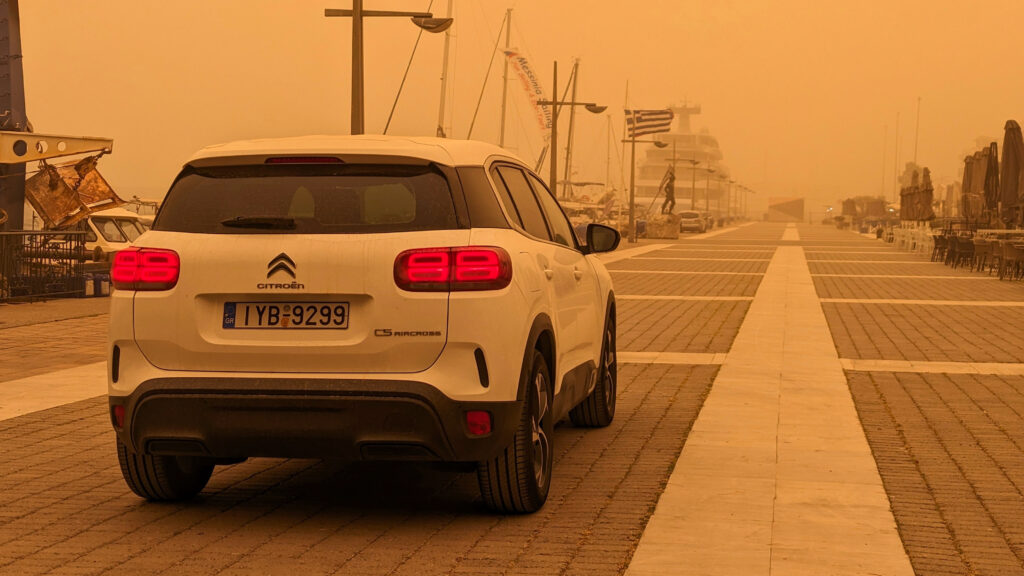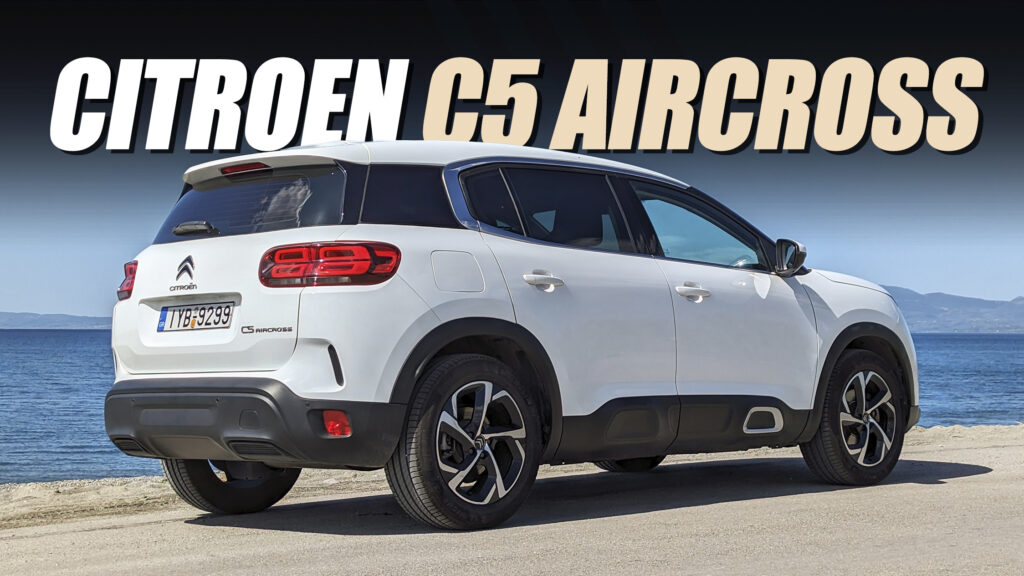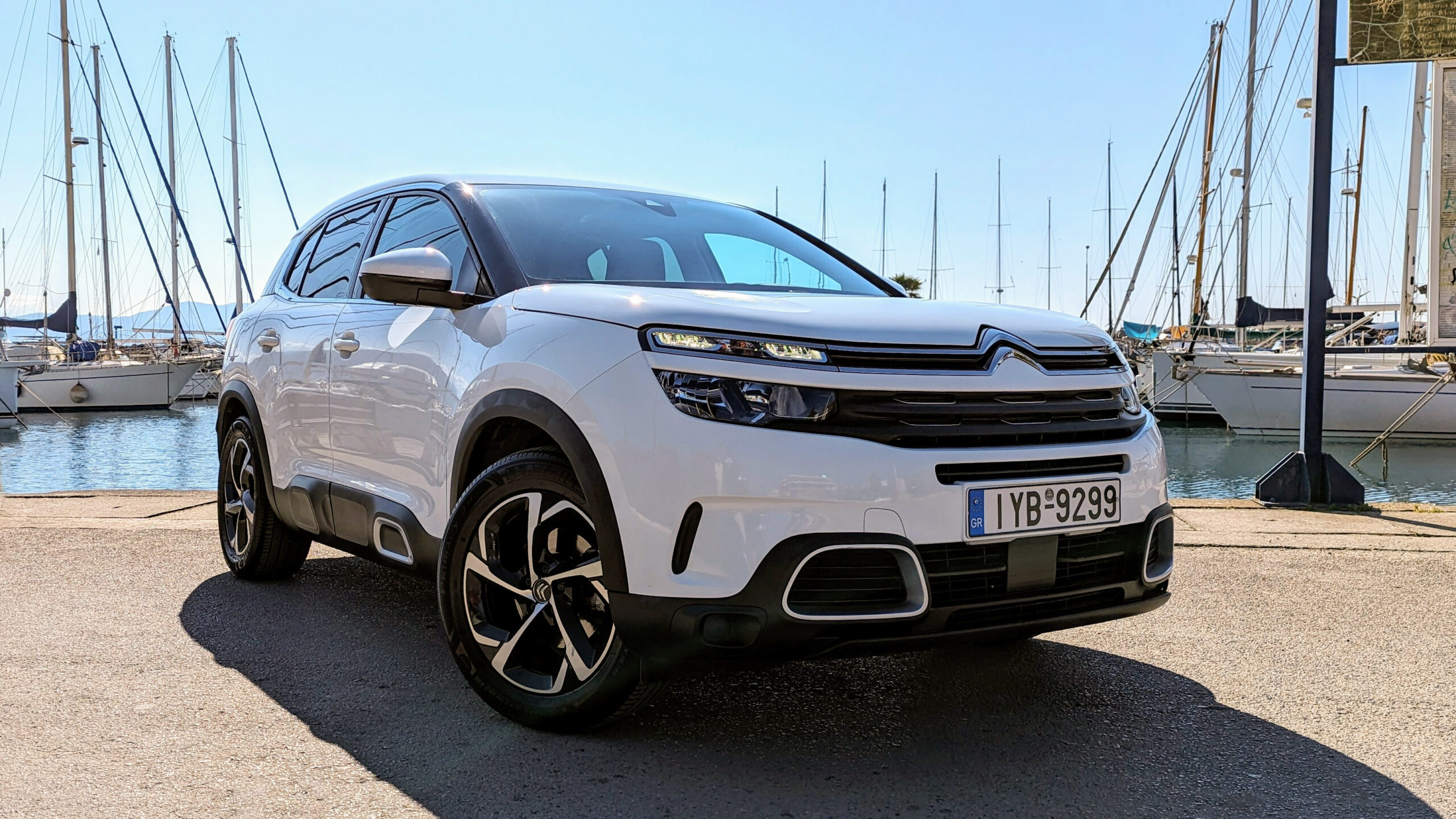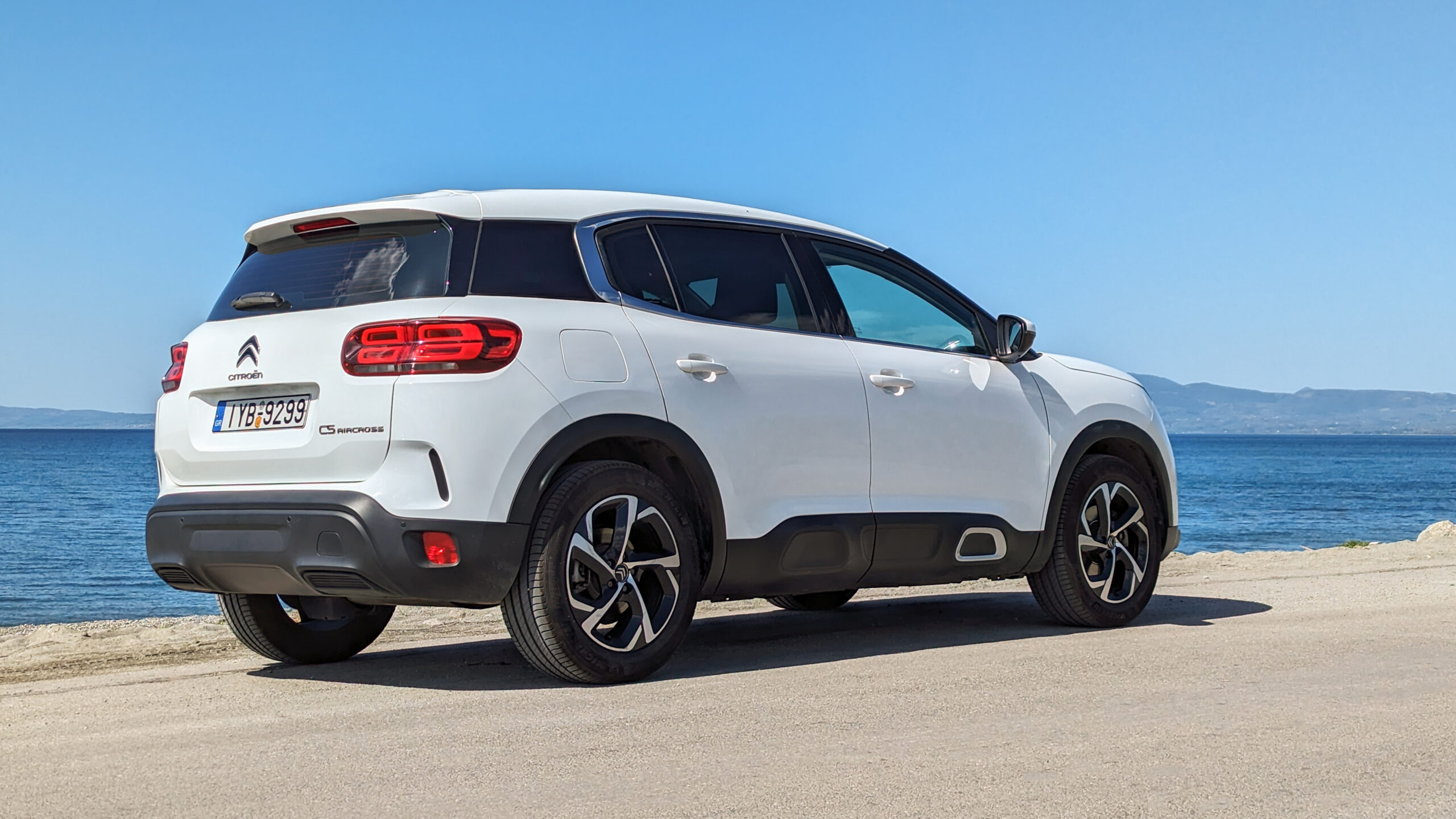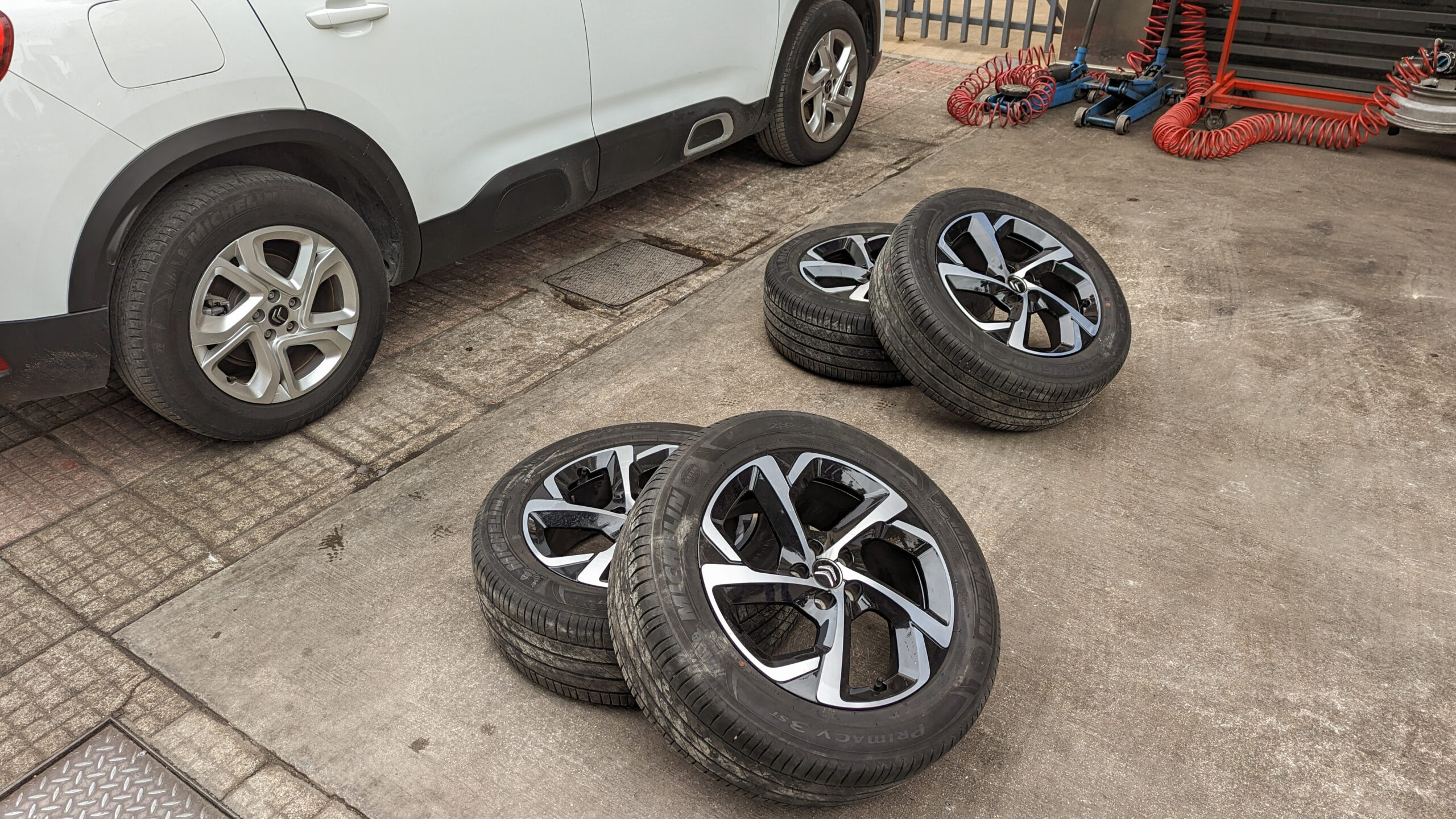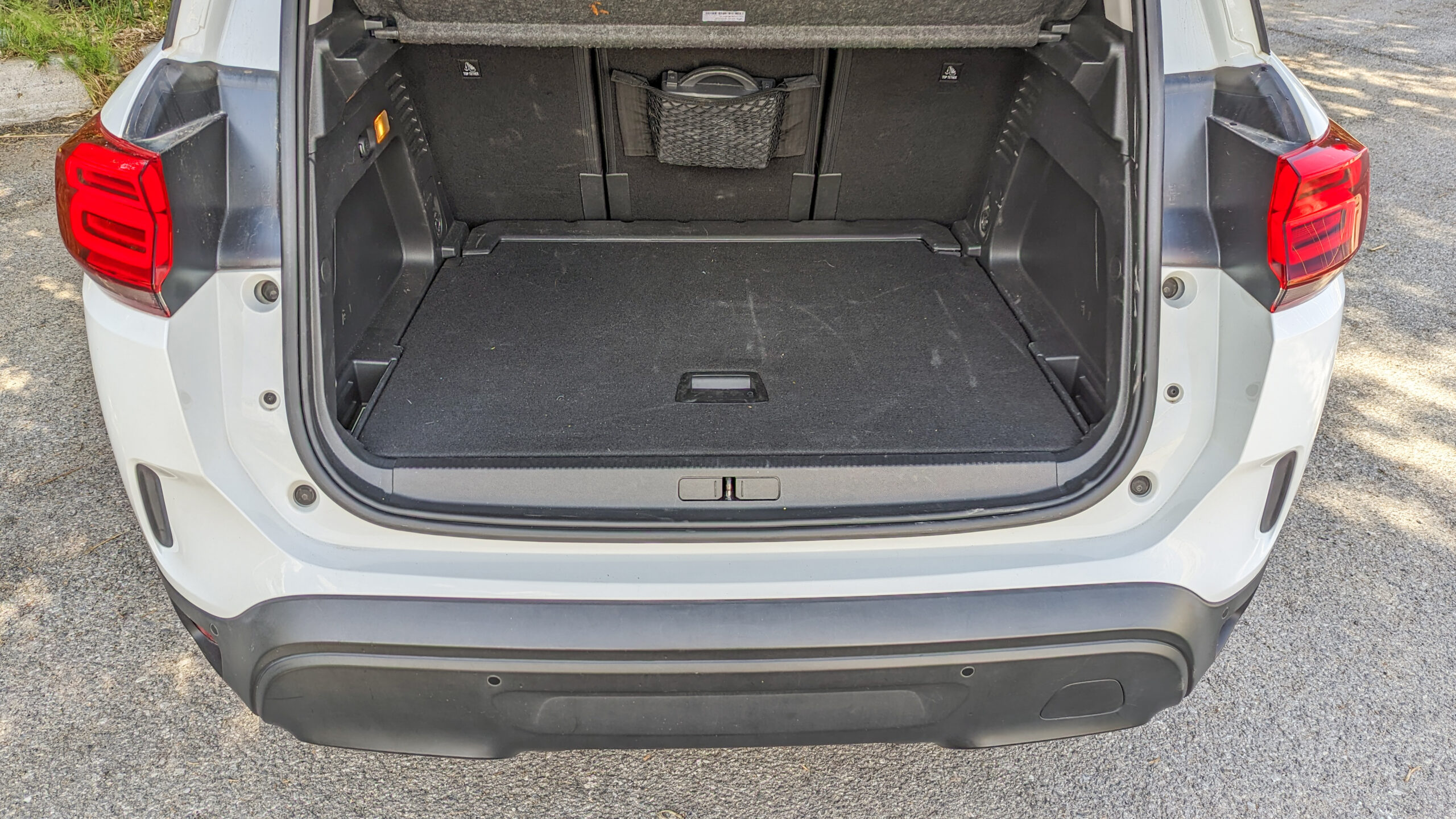Last year, as our family expanded and my trusty 2018 Citroen C3 began to feel more like a wheeled sardine tin than a family car, the search for a larger, more practical mode of transport became inevitable. After months of enduring the indignity of countless test drives, the C5 Aircross emerged as the least offensive option.
It offered space, comfort, and a modicum of style, making it the pragmatic choice for a family man facing the grim reality of expanding waistlines and toy-strewn interiors. A compromise, yes, but a necessary evil until the kid(s) fly the nest.
As automotive journalists, we’re spoiled for choice when it comes to picking a set of wheels. But when faced with the mundane task of family transportation, even we must succumb to the tyranny of practicality. The Citroen C5 Aircross emerged as a surprising contender, not out of any misplaced Gallic affection, but due to a compelling blend of space, comfort, and a touch of French eccentricity.
Carscoops Garage: This Is Our 2011 Renault Clio RS 200 AGP
Introduced in 2018, with a nip and tuck in 2022, the C5 Aircross first crossed my radar in the summer of 2019 when I first had the chance to review it. Even then, it stood out from the SUV crowd with its quirky charm and unexpected blend of comfort and practicality.
Being fully aware that an all-new second-generation model is expected later this year, I pounced on a pre-facelift C5 Aircross, taking advantage of its depreciating value. The C5 Aircross has always been a victim of its French heritage, unfairly tarred with the same reliability brush as its less fortunate compatriots. This prejudice often translates into surprisingly attractive deals for buyers willing to overlook the Gallic stereotype.
Styling is subjective, but the C5 Aircross‘s blend of boxy practicality and curvaceous flair has a certain charm. Its split headlights and old-school chevron badge are showing their age, but the rear-end design, with its pill-shaped LEDs, remains fresh. It’s a quirky look, but one that undeniably stands out in a crowd.
While I’m not typically drawn to monochromatic palettes, white is a surprisingly strong choice for the C5 Aircross. It’s a common observation among owners that white visually enlarges the car. More importantly, it’s crucial for maintaining a cool cabin during Greece‘s scorching summers, especially when paired with tinted rear windows.
As with my previous C3, I bought a C5 Aircross in the lowest available grade. This meant compromising on features like halogen headlights (a jarring contrast to the LED DRLs), roof rails, a digital instrument cluster, and the Grip Control system. The smaller 17-inch wheels were the least of my concerns.
I immediately swapped the latter for a new set of 18-inch alloys, sourced from the higher-spec trim, and wrapped them in fresh Michelin Primacy 4 tires. In my eyes, this made a huge improvement on styling and proportions, without compromising the signature ride quality of the SUV (more about that later).
Spacious Cabin
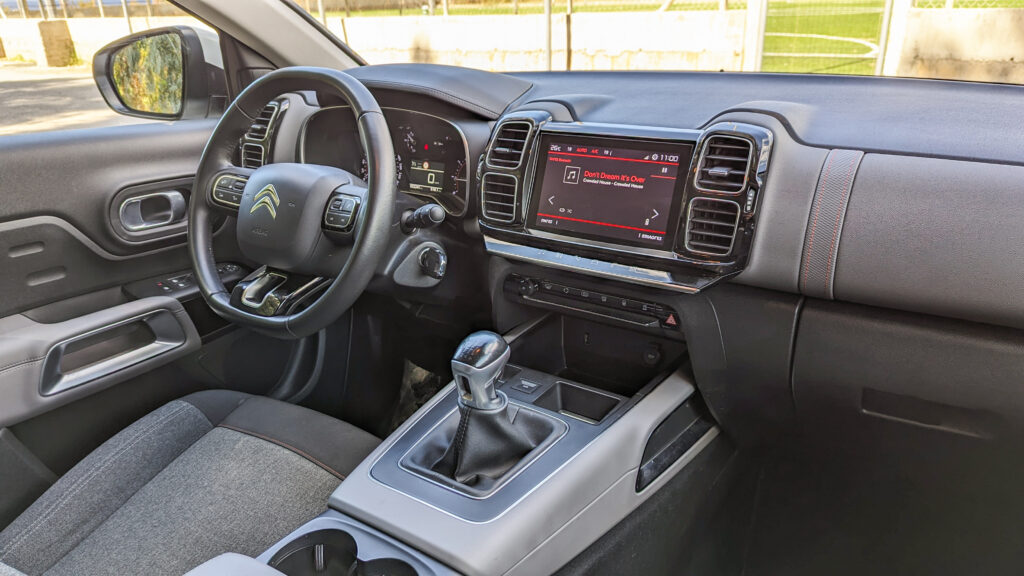
The Citroen C5 Aircross shares the PSA-era EMP2 underpinnings with the previous-gen Peugeot 3008, the outgoing Opel Grandland, and the DS 7. Measuring 4,500 mm (177.2 inches) long, the Citroen was the second largest among the Stellantis compact SUV cousins of this generation, behind the more premium DS and excluding the three-row Peugeot 5008 which touches on a higher segment.
More: 2024 Peugeot E-3008 Is Here To Start A Stellantis EV Revolution
While the difference in size is only +50 mm (2 inches) compared to the Peugeot 3008, the Citroen feels more airy and spacious inside, and comes with 580 lt (20.5 cubic feet) of cargo space that looks even larger in real life. Another highlight is the three individual seats on the rear bench, with sliding and reclining function. These can fit a child seat and two adults at the back, something that is not possible in most rivals.
The only alternative offering more interior space than the Citroën C5 Aircross was the slightly larger Skoda Kodiaq, which proved harder to find in this price bracket. The competing Skoda Kamiq and Seat Ateca, although good value, felt a bit too generic for my tastes.
Another option would be to wait for the successor of the Citroen C5 Aircross, which is expected to grow even further, most likely matching the 4,650 mm (183.1 inches) of the new Opel Grandland. However, it is safe to assume that even the mild-hybrid version will be much pricier at launch, as is the case with the existing model if bought new.
Back to the interior, the design of the dashboard is simple and clean, with hard plastics but softer areas on the important touchpoints. My personal favorites are the plush seats and the high-mounted center tunnel with a surprisingly large storage compartment.
The 8-inch infotainment touchscreen of the base-spec trim misses out on features like Android Auto or navigation, but it is pretty easy to use and can be turned off completely if desired. On the downside, I would prefer traditional knobs for the climate controls instead of having them integrated within the touchscreen, and would happily trade the touch-sensitive shortcuts for Peugeot-style toggle switches.
The King of Comfort
And that leads us to the most important virtue of the C5 Aircross, which is comfort. Citroen’s unique suspension system, featuring hydraulic cushions and softer springs, gives it an edge over competitors, especially for long-distance travel, offering a ride quality that is nothing short of superb.
Review: Jeep Avenger EV Is A Fun Little Gem That’s Too Small For US
While the Citroen C5 Aircross may not match the dynamic prowess or steering precision of sportier compact SUVs like the Ford Kuga and Kia Sportage, it offers its own brand of driving enjoyment. Its handling surpasses initial expectations, and although there’s noticeable body roll and dive under braking, these quirks quickly become familiar. Contrarily, its plush ride and relaxed demeanor allow it to distinguish itself in a crowded segment, honoring Citroen’s storied heritage of comfort-focused vehicles.
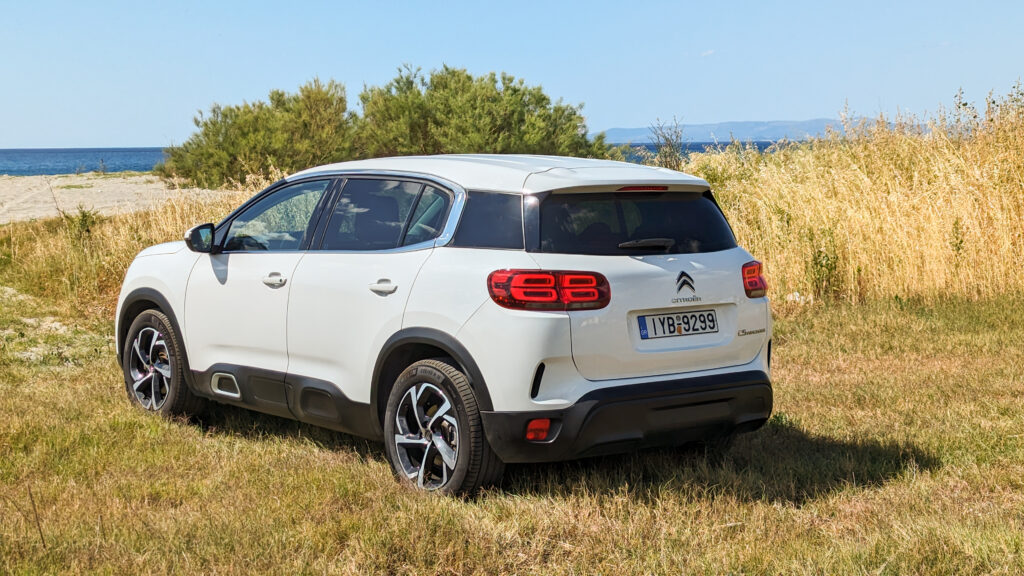
Despite the inherent limitations of a FWD platform and standard road tires, the soft suspension and generous 230 mm (9 inches) ground clearance excel on bumpy gravel roads – often leading to Greece’s most picturesque beaches. My mild off-roading excursions had me contemplating waiting for the new Dacia Duster, yet I don’t regret opting for a vehicle a segment higher.
As for the powertrain, the small but turbocharged 1.2-liter three-cylinder PureTech gasoline engine is good for 128 hp (96 kW / 130 PS) and 230 Nm (170 lb-ft) of torque. Stellantis recently updated the three-pot with the addition of a mild-hybrid system in auto-only flavor, but I opted for the much-cheaper non-electrified version, mated to a six-speed manual.
More: Stellantis To Flood European Market With Mild-Hybrids By 2026
Despite its seemingly modest powertrain for such a hefty SUV, the C5 Aircross tackles daily demands with aplomb, cruising effortlessly at highway speeds. It also excels in dampening noise, vibration, and harshness (NVH), with its three-cylinder engine proving notably quieter than many smaller-segment counterparts from Stellantis.
Many of you would probably choose the torquier and more frugal 1.5-liter BlueHDi diesel, with a few used examples being available at a similar amount of money. However, a diesel would have more than 100,000 km (62,000 miles) on the clock instead of the only 29,000 km (18,000 miles) of my gasoline-powered C5 Aircross which looked like new in the preliminary checks. I also don’t expect to do that many miles on a yearly basis for a diesel to make sense.
The significantly more powerful – but also heavier – PHEVs were out of the question due to their steep pricing. Finally, the zippier and discontinued turbo 1.6-liter gasoline unit might sound like a sweet spot in the range, but it is a rare find in the user car market.
Verdict
So, this was my full confession on why I bought Citroen’s compact SUV, right before it gets replaced by a new generation. To me, it ticked all the right boxes as a sprightly used vehicle under five years old, offering ample space for family and friends, a modern look, and a comfortable ride that outshines its rivals
The bottom line is, while the thrill of an Alfa Romeo Giulia or a Ford Fiesta ST on a winding road is tempting, the plush suspension of my Citroën proves to be the superior choice for my needs, comfortably navigating me to remote destinations.
After six months of ownership and having traveled more than 8,000 km (5,000 miles) with it, I couldn’t be happier with my decision. At the end of the day, you don’t often come across vehicles with a distinct character in mainstream segments, especially at this price point.
